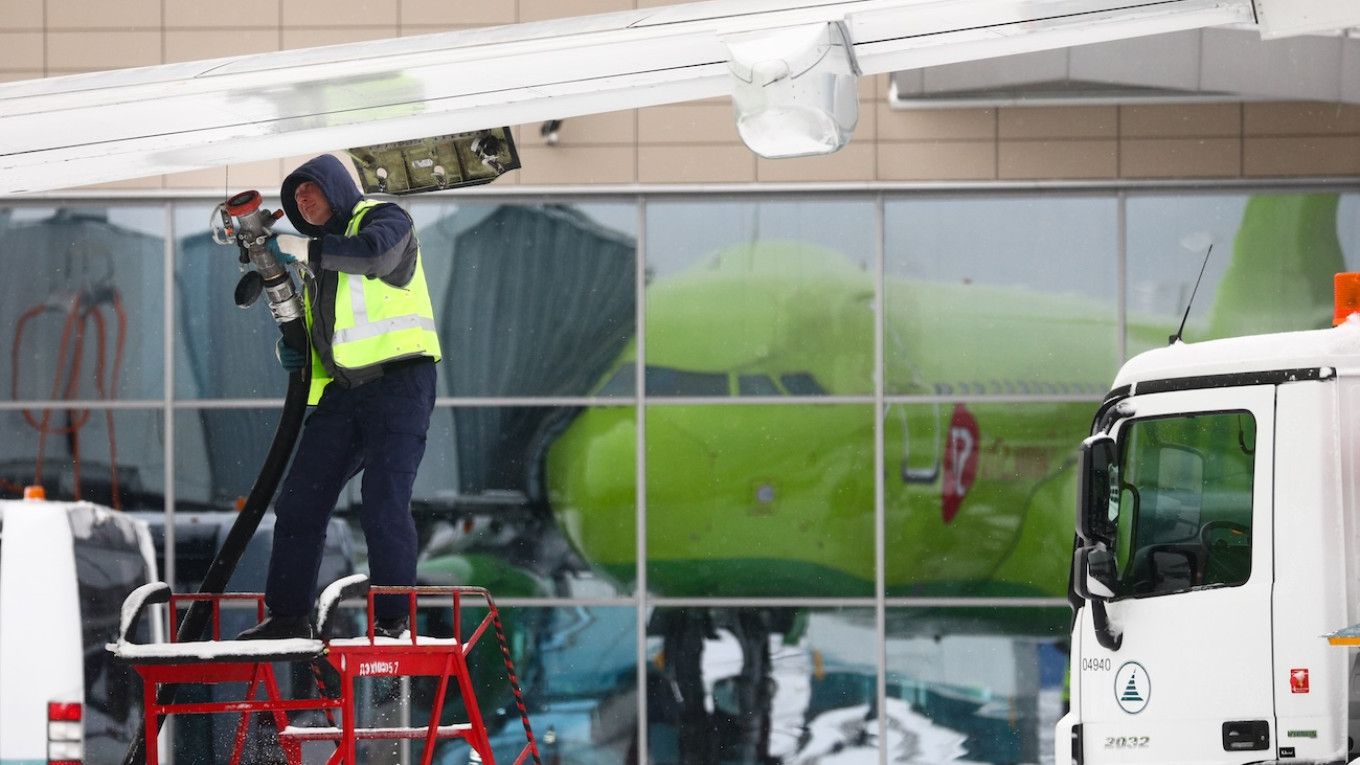A crisis with aviation fuel is looming in Russia
4 November 15:27
Following the crisis in the gasoline market, where a shortage has emerged after strikes on oil refineries and wholesale prices have soared by 40-50% since the beginning of the year, Russia may face problems in the jet fuel market. This was stated by Maxim Dyachenko, managing partner and member of the board of Proleum, the largest private supplier of petroleum products in Russia, "Komersant Ukrainian" reports, citing Russian propaganda media.
To resolve the crisis with the production of petroleum products, the Russian government has eased requirements for refineries. In particular, winter diesel can now be produced by mixing summer diesel with kerosene. This creates a risk of a sharp rise in the price of jet fuel, which, in turn, poses risks to aviation, warns Dyachenko.
The government also sees the market as a threat. At a meeting with Deputy Prime Minister Oleksandr Novak, according to a media source, they discussed the possibility of limiting the growth of jet fuel prices on the stock exchange by decree. Currently, such restrictions are in place for gasoline: an order for its purchase cannot be placed at a price higher than 0.01% of current market quotations.
Unlike gasoline, wholesale prices for jet fuel are now lower than at the beginning of the year – RUB 79650 thousand per ton versus RUB 82412. However, since September, jet fuel has been rising in price – by 11% over 2 months, or RUB 8 thousand per ton.
From January to the end of October, prices for Ai-92 soared by 42%, and for Ai-95 by 49%. However, last week the prices unexpectedly fell by more than 10%. on November 1, Ai-92 gasoline cost 65.2 thousand rubles per ton on the stock exchange, while Ai-95 cost 72.96 thousand rubles.
At the peak of the gasoline crisis, the difference between the price of fuel in stock and the exchange price reached 40%, which increased the demand for exchange batches to abnormal levels, says Dyachenko.
“The key and main source of price growth is the shortage of goods,” he emphasizes. Following the drone attacks on refineries, which affected at least 30 plants across the country, oil refining volumes in Russia fell by 10% to 4.86 million barrels per day, according to OilX analysts. Compared to pre-war 2021, oil companies have lost 14% of production, which is the lowest in at least the last 6 years.









